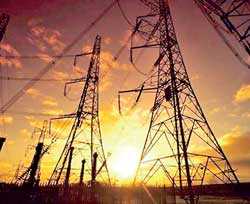Sunday Feb 15, 2026
Sunday Feb 15, 2026
Monday, 1 April 2019 00:14 - - {{hitsCtrl.values.hits}}
The National Chamber of Exporters (NCE) which is the only private sector chamber that exclusively serves Sri Lankan exporters, has expressed grave concern regarding the adverse effects on the exports sector, of the current power crisis.
The Chamber particularly notes with dismay the unscheduled power cuts effected hitherto without warning which has resulted in the disruption of vital production activities of especially export oriented enterprises, and industries in general.

In this respect it has already been pointed out through the media, as well as by pronouncements made by the Public Utilities Commission of Sri Lanka (PUCSL), that power disruptions effected by the Ceylon Electricity Board (CEB) without intimation and approval of the PUCSL is illegal.
Following the above revelation it appears that power disruption will henceforth be effected according to a schedule.In terms of the proposed schedule it is stated that power cuts will be effected for a three-hour duration during day time (in one of three time slots), and for a one hour duration in the night (in one of four time slots).Additionally a 2-1/4 hour power disruption during the day in one of three time slots, and a one hour disruption in the night in one of three time slots, will be effected on Saturdays, while no power disruptions will occur on Sundays.
In this regard the Chamber trusts that disruptions will be effected in specific local authority or administrative areas, in an orderly manner, at the same specific time slots each day, to enable enterprises to plan their production activities and reduce adverse effects to the best possible extent.
The Chamber also laments the fact that the current crisis has arisen due to the abject failure of the policy makers and responsible State Institutions in the Power Energy Sector to implement the projects for alternative power generation, over and above the capacity for hydropower generation, to meet the projected demand in terms of the Master Power Sector Plan, in respect of expanded production activities, and domestic consumer demand.
Media reports have indicated that this state of affairs has been due to delays arising out of alleged irregularities and vested interests of various parties.This too at a time when the dire need is to undertake investments, and expansion of production activities in the vital field of exports, to achieve National Economic Development targets.
Further according to media reports, the Ministry of Power and Energy has requested large companies to utilise own generators to meet their power requirements, in order to relieve the load on the national grid.However, some member companies of the Chamber with relatively large production bases have pointed out that this is not a straight forward practical solution because many large enterprises depend on suppliers who are most often small entities that do not possess the capital nor the ability to undertake their own power generation, by investing in generators.
The Chamber also questions as to how many megawatts of power state entities have been able to add to the national grid, through alternative energy sources, particularly solar power.Further the technology used in the country does not enable storage of electricity generated through solar power even by private parties, since the generated electricity has to be fed to the national grid in normal circumstances, while this is not possible during the periods of power cuts, according to a council member who is conversant with the technicalities.
In these circumstances, the Chamber suggests that action should be taken at least now to acquire the available technology for storage of electricity, generated through the installation of solar panels in batteries. In this respect the Chamber states that private sector entities should be assisted by the state, in the capacity of partners and part-owners of the equipment required to use the technology for storage, of the electricity generated.it adds, that had this been done earlier, storage and use of electricity generated through solar power panels, could have saved valuable water resources, for additional hydropower generation during the period of drought.
In view of the above the Chamber strongly feels that the Government should pay special attention to the implementation of the planned power generation projects, under the Power and Energy Master Plan if the country is to attract the envisaged investments, particularly Foreign Direct Investments (FDIs) in the exports sector to achieve the economic development targets under Vision 2025.For this purpose the Chamber proposes that a committee comprising knowledgeable and competent representatives of the relevant stakeholders should be placed in charge to oversee implementation of the required power projects.